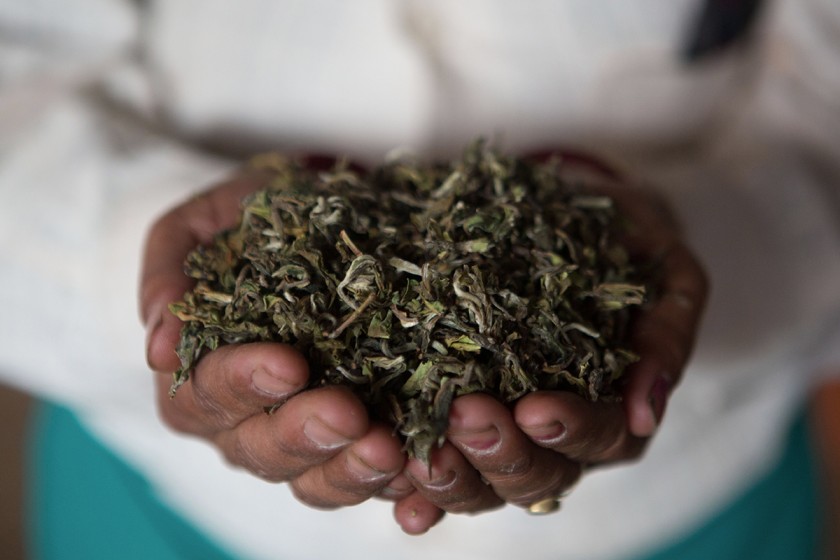Where can I buy authentic Indian manor boutique Darjeeling black tea and Assam black tea?
Five years after digitization, tea auctions in India are still in disarray. The all-Indian Federation of Tea traders (FAITTA) has warned that price discovery, the main reason for financing digital auctions, is failing. In January, FAITTA, India's largest professional tea trader group, asked the Tea Council of India (tea Board of India) to conduct a comprehensive evaluation of electronic auctions before completing the planned national rollout in 2021. The traditional 17th-century auction was cancelled to open the market to outsiders who did not want to set up offices in Calcutta, Kunur, Cochin, Guwahati, Assam and 10 other auction centres. Open auctions to external bidders are usually traded at a "fair market" price, and the highest bidder will receive a single lot-a single bid may be an outlier. If bidders decide that they must own a particular site, they will no doubt outdo other stakeholders, but the auction should not distort price standards or long-term trends. Auction prices did rise in 2020, but the situation was exacerbated by production shortages, shortages of ground transport and sea containers, displacement of workers, illegal leakage of imported tea for re-export and declining processing capacity. Compared with 2019, the decline in production increased the average price of tea by 31% last year, to an average of 185 rupees ($2.53) per kilogram. Viren Shah, chairman of FAITTA, told Financial KuaiBao that the structural rules governing auctions must be revised because of "the wrong logic of removing the auction items". In the long run, the auction logic of the highest price may have a serious adverse impact and affect the buyer's participation in the auction. This may be counterproductive to the intentions of the Tea Bureau and the interests of stakeholders. " "if the auction system is implemented in accordance with the current configuration, it may lead to an unnecessary increase in tea prices," Shah said. " In other words, "the price of the electronic auction does not reflect the actual situation," he said. "auctioneers update the number of items sold and unsold in each auction cycle," according to the Electronic auctioneer's user Handbook, released by the Tea Committee. " The manual says, "when the bidding time for the activated batch ends (configured by the administrator), the disassembly will begin." All bids received will be sorted out and dismantled. The system can automatically remove parcels that reach or exceed the reserved price. At the auction site, you can view the report by selecting the appropriate season, sales figures, auction date and auctioneer. "

The auction price in 2020 is about 35% higher than in 2019 (an average of 80 rupees per kilogram). "this is the result of a fair price discovery mechanism based on demand and supply," Shah wrote. Tea production last year was 1.25 million tons, a decrease of about 100m kilograms from 1.35 million tons the previous year. The retail price of tea has risen by an average of 70 rupees per kilogram this year. " Will production continue to decline? The spring harvest has not yet begun, but one trend seems certain: the total output of small farmers exceeds that of registered plantations. Bijoygopal Chakraborty, president of the Indian Federation of small Tea Farmers' Associations (csta), estimates that small farmers will produce 631 million kilograms of tea in 2020, more than 625 million kilograms of registered tea gardens. "even in 2019, our contribution (small tea farmers) is slightly lower than that of organized industries (tea gardens) at the national level. This year, however, our share is not just real estate, and we hope this trend will continue in the coming years. Many growers are first-generation rural entrepreneurs, which is indeed an achievement. In the first 11 months of 2020, India's tea exports fell 18.2 per cent to 188 million kilograms. The fall in prices is partly due to a bumper harvest in Kenya. Tea production fell by 9.7% in 2020, but good weather in West Bengal eased concerns about 2021. People's fear of novel coronavirus has been alleviated, and the possibility of blockade has also been reduced. No one knows exactly why, but even without widespread distribution of the coronavirus vaccine, the number of Covid-19 cases in India has plummeted to less than 10, 000 a day. Mechanization is also essential to retain young people in the agricultural sector. According to Kaumbutho, the economic value of African agribusinesses will reach $1 trillion by 2030. "Kenyan youth need to focus on the agricultural sector and maintain their innovative capacity," he said. "
Important Notice :
前街咖啡 FrontStreet Coffee has moved to new addredd:
FrontStreet Coffee Address: 315,Donghua East Road,GuangZhou
Tel:020 38364473
- Prev

How about black tea from Vahdam, a famous brand of Indian tea? The difference between Assam and Darjeeling
For growers and sellers of specialty tea, the attraction of white tea lies in its profits. For buyers, this is the best delicacy and delicacy, and to a lesser extent, the new variety provides extra strength. This confusion and lack of standard definitions are both opportunities and challenges. All this creates a resemblance
- Next

Which is better, Kenyan black tea or domestic black tea? How much is a box of Kenyan black tea brand kericho?
In February, the Kenyan High Court ruled that although it could lead to unemployment, trade unions could not stop tea farmers from picking tea mechanized. This decision confirmed a decision of the Court of Appeal, which overturned the 2010 decision of the lower court. The survey results clearly show that Unilever Kenya Co., Ltd. has the right to
Related
- Unexpected! Ruixing Telunsu lattes use a smoothie machine to foam milk?!
- % Arabia's first store in Henan opens into the village?! Netizen: Thought it was P's
- Does an authentic standard mocha coffee recipe use chocolate sauce or powder? Mocha Latte/Dirty Coffee/Salty Mocha Coffee Recipe Share!
- What is the difference between Vietnam egg coffee and Norway egg coffee? Hand-brewed single product coffee filter paper filter cloth filter flat solution!
- What is the difference between sun-cured and honey-treated coffee? What are the differences in the flavor characteristics of sun-honey coffee?
- How to make Italian latte! How much milk does a standard latte use/what should the ratio of coffee to milk be?
- How to make butter American/butter latte/butter Dirty coffee? Is hand-brewed coffee good with butter?
- Is Dirty the cold version of Australian White? What is the difference between dirty coffee/decent coffee and Australian white espresso?
- Relationship between brewing time and coffee extraction parameters How to make the brewing time fall to 2 minutes?
- Got entangled?! Lucky opens a new store, Mixue Ice City, and pursues it as a neighbor!

